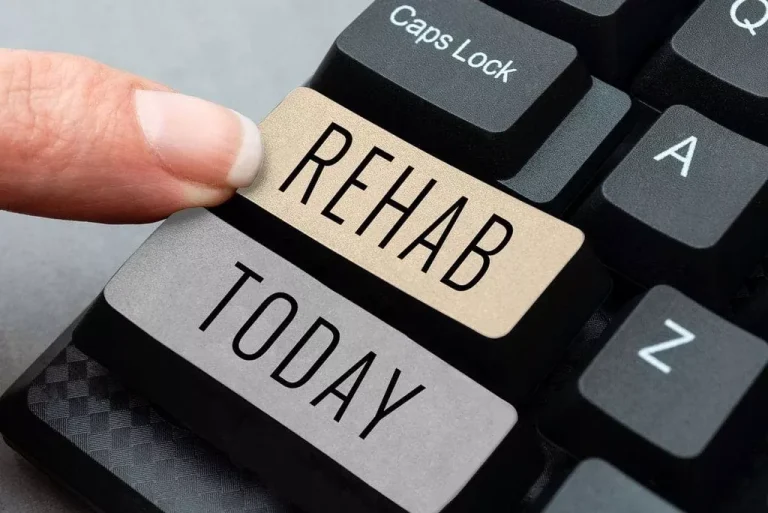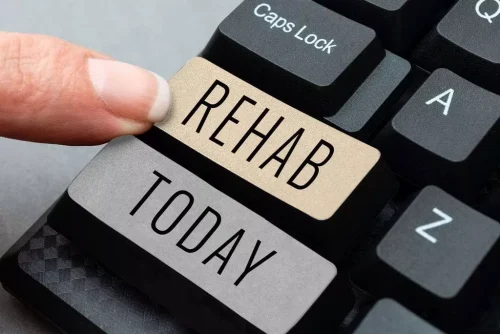Relapse Prevention Plan: Techniques to Help You Stay on Track

Relapse prevention group activities can be a cornerstone in the journey to recovery. These activities allow you and other group members to share experiences and foster camaraderie. You must accept help from supportive family and friends when you need it. Mindfulness is a practice that involves being present in the moment and being aware of your thoughts without judgment. Triggers can be anything from people, places, or objects that remind you of substance use.

Techniques for overcoming relapse prevention challenges are:
This increases the chance for patients to eventually reach a stable and lasting recovery. The low relapse rate in our study supports the effectiveness of this strategy, although a limitation of this study is the non-experimental study design. Studies on relapse prevention with an average follow-up period of 18 months found relapse rates between 35 and 41 %. In leading guidelines there is general consensus that relapse prevention in patients treated for AN is a matter of essence. However, lack of methodological support hinders the practical implementation of relapse prevention strategies in clinical practice.
- You might also list some specific goals that you hope to achieve in the upcoming months or years.
- Albert Bandura’s social learning theory also emphasizes the role of observational learning and social influences in behavior change.
- You might want to write a list of friends or family members you can call when you are experiencing cravings or challenging situations.
- The phrase“cravings”is used to refer to the feeling someone has when they wish to use again.
- However, this does not mean that a person cannot recover from SUD or AUD.
- Give yourself credit for each small gain you make — one week sober, one month off drugs, etc.
UNDERSTANDING DETOXIFICATION
Working with the relapse prevention guideline offers structured support to prevent relapse in patients with AN. We recommend that all patients with AN set up a RPP at the end of their treatment, with regular monitoring for a period of at least 18 months after discharge. relapse prevention plan The first variable was ‘Duration of treatment before the start of the aftercare program’.
Common Challenges in relapse prevention include:
A supportive environment helps to motivate the loved one in recovery =https://ecosoberhouse.com/ by rewarding their progress and providing encouragement even in difficult times. The presence of family members who care about their well-being empowers them to stay on track with their goals. Positive reinforcement prevents individuals from slipping back into old habits because it makes them feel emotionally fulfilled as opposed to seeking instant gratification through drug or alcohol use. Navigating the path to recovery from addiction is a journey marked by moments of triumph and times of challenge. At the center of this journey, serving as a faithful compass guiding individuals towards sustained sobriety is the relapse prevention plan. According to NIDH, 85 percent of individuals relapse within a year of treatment which is why it’s so important to create a plan to stop relapse from occurring.

The effort to choose your health and well-being every day is a great feat, so continue to reflect and pride yourself on your hard work. Therapists and counselors will document, share, and regularly update these strategies throughout your treatment. Mindfulness-Based Relapse Prevention (MBRP) integrates techniques from Mindfulness-Based Stress Reduction (MBSR) and Mindfulness-Based Cognitive Therapy (MBCT). About half of people recovering from an SUD eventually return to using within 12 weeks of completing intensive inpatient programs that may last 4–12 weeks or more.

What are the Most Effective Relapse Prevention Techniques?
Some common early warning signs include changes in sleep patterns or eating habits, increased irritability or impatience, or sudden changes in mood or behavior. By understanding what to look for, individuals are better equipped to respond proactively and prevent a relapse. Moreover, gathering as much valuable and rare information as possible can help identify triggers that may lead to relapses. It could include environmental factors, social pressures, or personal issues that your loved one may be struggling with that require support.
What are Long-term Maintenance Strategies for Relapse Prevention?
By creating a comprehensive relapse prevention plan and using the tools and strategies we’ve Drug rehabilitation discussed in this article, you are taking major steps toward a healthier, substance-free life. Professional help and resources play a crucial role in addiction recovery. Involving mental health professionals and utilizing various treatment options can significantly enhance your recovery process. These experts provide specialized support and tools tailored to your unique needs, helping you build a strong foundation for long-term sobriety.
Stress can be internal or external and may include work-related issues or conflicts in personal relationships. Negative emotions such as anger, sadness, or fear can lead to relapse if not managed properly. Social pressure involves peer pressure and can involve situations like parties where alcohol or drugs are prevalent. Boredom or lack of purpose often occurs when individuals lack meaningful activities in their lives. Physical discomfort or pain is another cause and can result from chronic illness or injury. Complacency arises when an individual becomes too comfortable with their progress in recovery and stops putting effort into maintaining it.

Establish self-care strategies
- Self-care will improve your mental health by reducing symptoms of anxiety and depression, which can reduce your risk for relapse and improve your quality of life.
- Remember that setbacks can be opportunities for growth, and adjusting the plan as needed can help ensure continued success.
- Each of these techniques has been extensively studied and shown to reduce the risk of relapse significantly.
- Dr. Gordon Alan Marlatt, a University of Washington Psychology professor, founded this relapse model centered around high-risk situations.
- A relapse prevention plan is used to help keep a person from using a substance after they have decided to quit.
This might also include symptoms of any pre-existing mental health conditions, such as depression, anxiety, or trauma-related conditions. A person’s support system may also play an important role in recovery and the avoidance of relapse. Family counseling and therapy sessions may help loved ones to better understand the disease of addiction and learn to recognize potential relapse triggers and ways they can support in those instances. Communication skills and the overall family dynamic may improve through family therapy as well. You’ll find that your clients have more success avoiding relapse when they have a solid plan to deal with triggers, temptation, and all the other challenges that come with sobriety.
How to Manage Cravings
You can also learn new skills or hobbies to occupy your time, build self-esteem, and provide a sense of accomplishment. These new activities can serve as positive outlets for stress and boredom. A structured daily routine with adequate rest, proper nutrition, and movement can provide stability and reduce uncertainty.